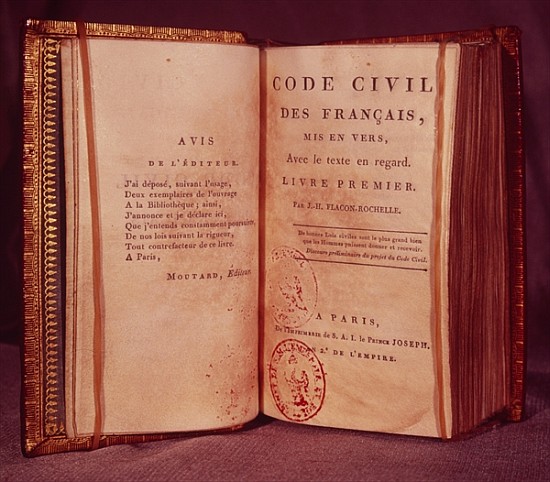In 18th century Europe a man by the name of Napoleon Bonaparte was launching a bid to build a French Empire. He came to prominence after the French Revolution.
In 1798 he led a military expedition to Egypt and captured cities in Palestine such as Gaza, Jaffa and Haifa. He was stopped by the Ottoman army at the Siege of Acre. His campaign comprised of human rights abuses as the time when he allowed his soldiers to kill 2,000 prisoners by bayonet or drowning. Men, women, and children were robbed and murdered for three days. This was the precursor for French colonial atrocities in Algeria, etc. The recent popular coups in Mali, Niger and Burkina Faso where French military and political interference is being removed is a result of this continued French imperial mind set.
There is an interesting chapter on Islam’s impact and influence on Napolean and the resultant influence on European law. Sheikh Saeed Kamali says that the French historian Gustave Lebon wrote that while in Egypt, Napolean got hold of an Islamic book on which he based the first uniform set of French laws. This was known as the Napoleonic Code or the French Civil Code of 1804 which is still largely intact. The book was called Sharah Dirdeer ala Mukhtasar al Khalil. This is an authoritative Maliki Fiqh book much like the Minhaj is for the Shafis.
Like other major Fiqh texts it covers all aspects of law including worship, personal law, trade, and commerce, etc. This adoption of the Mukhtasar by Napolean was the start of secularism and liberalism because Napolean left out the religious aspects and aspects dealing with morality such as laws on homosexuality and opened the door for man’s laws as opposed to Divine laws.
On studying the French Civil Code, one finds striking similarities with especially the Maliki school of thought. This is even though Napolean did not acknowledge the Islamic source of his laws nor do many historians. Here are some examples in his original code of 1804:
- If a man goes missing, the wife can apply to the court, and he will be presumed dead after a period of four years passes in the Maliki Fiqh. Article 115 of the French Civil Code also sets the term at four years.
- A guardian can be dismissed on grounds of fraud or instability in Maliki Fiqh. Article 444 of the French Civil Code states the same.
- Maliki Fiqh determines that a consumer loan of lending something that can only be benefitted from by using it such as food has to be replaced by a similar item. Article 1875 of the French Civil Code is the same.
- In the case of a wall dividing two properties collapsing and one neighbour wishing to rebuild it while the other refuses, the Court will compel the latter to pay towards the cost according to Maliki Fiqh. This is the same in Article 663 of the French Civil Code.
- Maliki Fiqh rules that a person cannot build a window or door overlooking his neighbour’s yard thereby causing inconvenience. Napolean’s code states the same.
- In Islamic inheritance there are certain instances where a percentage of the estate is left over after all the prescribed heirs are allocated their shares. In the Hambali and Hanafi Fiqh this will be redistributed to the heirs according to their shares. In the Maliki school this amount goes to the Public Treasury. Article 767-8 of the French Civil Code allocates it to the Republic of public treasury.
Why did Napolean take a Maliki text when he would have come across Shafi or Hanafi texts in Egypt? Sheikh Saeed Kamali surmises that the first experience that Europe had with Islamic Fiqh would have been Maliki. France, bordering Muslim Spain would have been most familiar with this school of thought because Muslim Spain almost uniformly adopted the Maliki legal school by 400 AH. The Fiqh’s text, as in all other Mathab’s texts, covered all circumstances of life such as the penal code due to them being reference points for judges in Muslim countries.
In other ways as well, Islamic law has fashioned modern European law:
- Georgio de Santillana, a professor at MIT, said that the Islamic civil code had ramifications in the international trade and commerce laws as we know them.
- Herbert George Wells states that Europe is indebted to Muslims with regards to International Law.
- Gustave Lebon laments the fact that the French won the Battle of Poitiers under Charles Martel against the Muslim forces of Abdur Rahmaan al Ghafiqi. This stopped the Muslim march into France and he says that the Arabs could have guided the French to Latin sciences much earlier in history as in Spain. When European kings could not write their names, Muslims in the universities of Andalus (Muslim Spain) were reading and composing poetry.
The European school curricula deliberately ignore the Muslim contribution for progress by speaking about the Greeks and Romans, then fast forwarding to the French Revolution. 800 years of Muslim advancement is left out leaving the populace ignorant.








COMMENTS